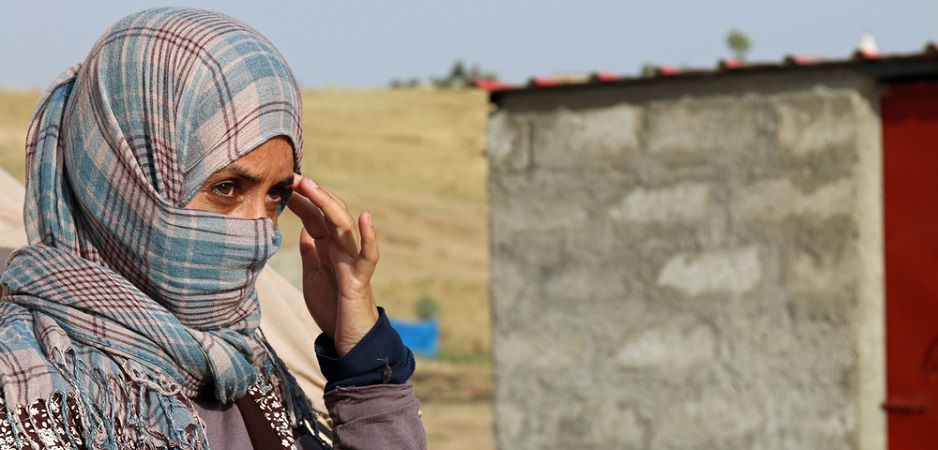When it comes to women’s rights in Iraq, it is time for a radical shift.
On July 25, police in northern Iraq found the body of a young woman, 25, who was murdered, burned and dumped on a rural road between the villages of Hizob and Grtik. It is reported that she was newly married and that her husband allegedly shot her after another man had passed by twice while they were having a picnic near Sulaymaniyah.
This is not the only news that shook our world in Iraq. Apparently, more is yet to come. According to local police, “each day a woman is … murdered,” but families often avoid reporting it as they are afraid of ruining their reputation or being dragged into family feuds.
To be frank, after a while things start to sound normal to locals. Today you hear one story, tomorrow another brutal one, and then eventually everyone just stops reacting as such stories become the norm.
Violence against women is not just about murdering them. These crimes go as far as physical and emotional abuse that takes place over time.
Even if police arrest the perpetrator, it will not change much. Many murder cases are claimed as “honor killings” and then shut for good. In the end, the crime is added to the murderer’s profile as a source of pride and honor, not something to feel guilty or ashamed of.
WOMEN’S RIGHTS IN IRAQ
Iraq has been torn apart by decades of war. Religious, political and economic conflicts have destroyed everything. People no longer feel safe. Stories of Iraqis being kidnapped and murdered have become everyday events.
Women are the biggest victims of such conflicts and crimes. In some places in Iraq, they are not even allowed to work or go outside their home without wearing a niqab or being accompanied by a male family member. Some are deprived of their basic rights, including the right to vote, study or love. Many have become dependent on men. Those who lost their husbands in the war against Daesh (Islamic State) are forced to look after the family. They will not have mastered any skills or received an education because they were not — and will not be — allowed to.
Early marriage is another issue that women often face, as well as domestic violence with all forms of physical and mental abuse. Few women manage to report it or live in a shelter that is provided by humanitarian organizations or the United Nations. If these women do report the abuse, they would be shunned due to social stigmatization and their families would never accept them back.
There are many local nongovernmental organizations (NGO) that serve women and work on gender-based violence. These NGOs cooperate with the courts and local law enforcement to follow the few cases that make it through. But while many organizations have started to work on these issues, there is a lot left to do. Women’s rights activists must work specifically on the cases of murdered women. Different social classes should be targeted as the mentality of society and their vision about women’s rights should be subjected to a radical shift.
 Shokhan Ahmad, the director of Women Legal Assistance Organization, stated: “Every day a woman is killed in [the] Kurdistan region of Iraq, [and] sometimes the number [doubles] and the authorities are not really interested in handling the murderer. The court system and honor killing-supporting laws should be amended and renewed.”
Shokhan Ahmad, the director of Women Legal Assistance Organization, stated: “Every day a woman is killed in [the] Kurdistan region of Iraq, [and] sometimes the number [doubles] and the authorities are not really interested in handling the murderer. The court system and honor killing-supporting laws should be amended and renewed.”
THE “HONOR OF THE FAMILY”
It is really hard to be a woman in Iraq. You are said to be the honor of the family, but instead you are treated like a big, dangerous nothing. There is always emptiness in every corner of your life, and you feel like a doll that your father, brother or husband has to direct.
For some, you don’t even have the right to be depressed, much less fall in love with a man of a different culture or religion.
Indeed, it’s hard to be a woman in Iraq.
The views expressed in this article are the author’s own and do not necessarily reflect Fair Observer’s editorial policy.
Photo Credit: Owen Holdaway / Shutterstock.com
Support Fair Observer
We rely on your support for our independence, diversity and quality.
For more than 10 years, Fair Observer has been free, fair and independent. No billionaire owns us, no advertisers control us. We are a reader-supported nonprofit. Unlike many other publications, we keep our content free for readers regardless of where they live or whether they can afford to pay. We have no paywalls and no ads.
In the post-truth era of fake news, echo chambers and filter bubbles, we publish a plurality of perspectives from around the world. Anyone can publish with us, but everyone goes through a rigorous editorial process. So, you get fact-checked, well-reasoned content instead of noise.
We publish 2,500+ voices from 90+ countries. We also conduct education and training programs
on subjects ranging from digital media and journalism to writing and critical thinking. This
doesn’t come cheap. Servers, editors, trainers and web developers cost
money.
Please consider supporting us on a regular basis as a recurring donor or a
sustaining member.
Will you support FO’s journalism?
We rely on your support for our independence, diversity and quality.






